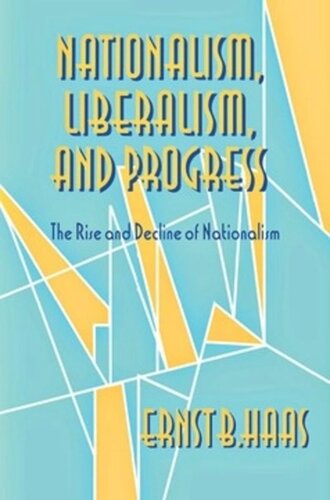

Most ebook files are in PDF format, so you can easily read them using various software such as Foxit Reader or directly on the Google Chrome browser.
Some ebook files are released by publishers in other formats such as .awz, .mobi, .epub, .fb2, etc. You may need to install specific software to read these formats on mobile/PC, such as Calibre.
Please read the tutorial at this link: https://ebookbell.com/faq
We offer FREE conversion to the popular formats you request; however, this may take some time. Therefore, right after payment, please email us, and we will try to provide the service as quickly as possible.
For some exceptional file formats or broken links (if any), please refrain from opening any disputes. Instead, email us first, and we will try to assist within a maximum of 6 hours.
EbookBell Team

4.3
78 reviewsHas global liberalism made the nation-state obsolete? Or, on the contrary, are primordial nationalist hatreds overwhelming cosmopolitanism? To assert either theme without serious qualification, according to Ernst B. Haas, is historically simplistic and morally misleading. Haas describes nationalism as a key component of modernity and a crucial instrument for making sense of impersonal, rapidly changing, and heterogeneous societies. He characterizes nationalism as a feeling of collective identity, a mutual understanding experienced among people who may never meet but who are persuaded that they belong to a community of kindred spirits. Without nationalism, there could be no large integrated state.Nationalism comes in many varieties, some revolutionary in rejecting the past and some syncretist in seeking to retain religious traditions. Haas asks whether liberal nationalism is particularly successful as a rationalizing agent, noting that liberalism is usually associated with collective learning and that liberal-secular nationalism delivers substantial material benefits to mass populations. He also asks whether liberal nationalism can lead to its own transcendence. He explores nationalism in five societies that had achieved the status of nation-states by about 1880: the United States, Britain, France, Germany, and Japan.Several of these nation-states became exemplars for later nationalists. A second, forthcoming volume will consider ten societies that modernized more recently, many of them aroused to nationalism by the imperialism of these "old" nation-states.